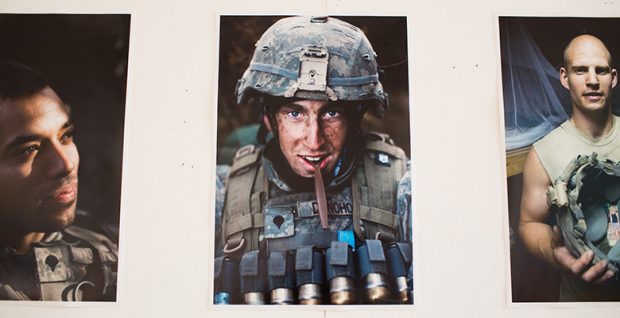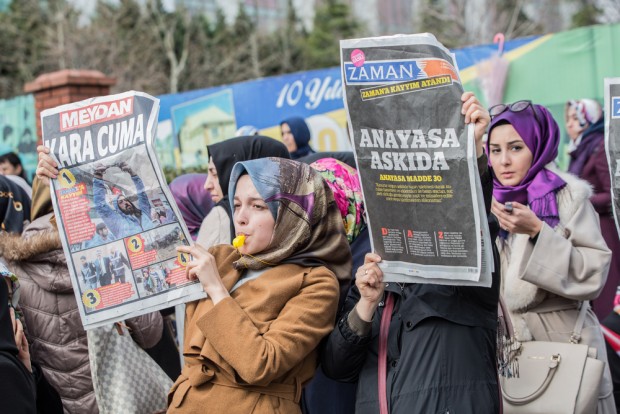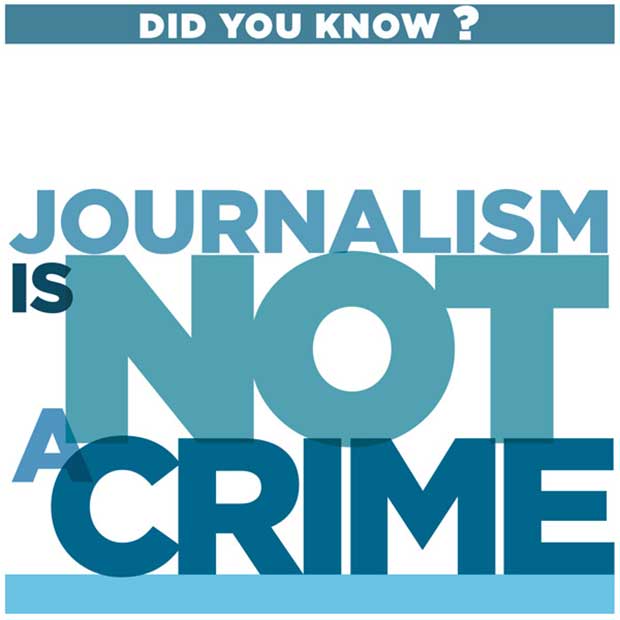Index relies entirely on the support of donors and readers to do its work.
Help us keep amplifying censored voices today.
[vc_row][vc_column][vc_custom_heading text=”Does anonymity need to be defended? Contributors include Hilary Mantel, Can Dündar, Valerie Plame Wilson, Julian Baggini, Alejandro Jodorowsky and Maria Stepanova “][vc_row_inner][vc_column_inner width=”1/2”][vc_column_text]
[/vc_column_text][/vc_column_inner][vc_column_inner width=”1/2″][vc_single_image image=”78078″ img_size=”full”][/vc_column_inner][/vc_row_inner][vc_column_text]
[/vc_column_text][/vc_column][/vc_row][vc_row][vc_column][vc_custom_heading text=”SPECIAL REPORT: THE UNNAMED” css=”.vc_custom_1483445324823{margin-right: 0px !important;margin-left: 0px !important;border-bottom-width: 1px !important;padding-top: 15px !important;padding-bottom: 15px !important;border-bottom-color: #455560 !important;border-bottom-style: solid !important;}”][vc_column_text]
[/vc_column_text][/vc_column][/vc_row][vc_row][vc_column][vc_custom_heading text=”IN FOCUS” css=”.vc_custom_1481731813613{margin-right: 0px !important;margin-left: 0px !important;border-bottom-width: 1px !important;padding-top: 15px !important;padding-bottom: 15px !important;border-bottom-color: #455560 !important;border-bottom-style: solid !important;}”][vc_column_text]
[/vc_column_text][/vc_column][/vc_row][vc_row][vc_column][vc_custom_heading text=”CULTURE” css=”.vc_custom_1481731777861{margin-right: 0px !important;margin-left: 0px !important;border-bottom-width: 1px !important;padding-top: 15px !important;padding-bottom: 15px !important;border-bottom-color: #455560 !important;border-bottom-style: solid !important;}”][vc_column_text]
[/vc_column_text][/vc_column][/vc_row][vc_row][vc_column][vc_custom_heading text=”COLUMNS” css=”.vc_custom_1481732124093{margin-right: 0px !important;margin-left: 0px !important;border-bottom-width: 1px !important;padding-top: 15px !important;padding-bottom: 15px !important;border-bottom-color: #455560 !important;border-bottom-style: solid !important;}”][vc_column_text]
[/vc_column_text][/vc_column][/vc_row][vc_row][vc_column][vc_custom_heading text=”END NOTE” css=”.vc_custom_1481880278935{margin-right: 0px !important;margin-left: 0px !important;border-bottom-width: 1px !important;padding-top: 15px !important;padding-bottom: 15px !important;border-bottom-color: #455560 !important;border-bottom-style: solid !important;}”][vc_column_text]
[/vc_column_text][/vc_column][/vc_row][vc_row][vc_column][vc_custom_heading text=”SUBSCRIBE” css=”.vc_custom_1481736449684{margin-right: 0px !important;margin-left: 0px !important;border-bottom-width: 1px !important;padding-bottom: 15px !important;border-bottom-color: #455560 !important;border-bottom-style: solid !important;}”][vc_column_text]Index on Censorship magazine was started in 1972 and remains the only global magazine dedicated to free expression. Past contributors include Samuel Beckett, Gabriel García Marquéz, Nadine Gordimer, Arthur Miller, Salman Rushdie, Margaret Atwood, and many more.[/vc_column_text][vc_row_inner][vc_column_inner width=”1/2″][vc_single_image image=”76572″ img_size=”full”][/vc_column_inner][vc_column_inner width=”1/2″][vc_column_text]In print or online. Order a print edition here or take out a digital subscription via Exact Editions.
Copies are also available at the BFI, the Serpentine Gallery, MagCulture, (London), News from Nowhere (Liverpool), Home (Manchester), Calton Books (Glasgow) and on Amazon. Each magazine sale helps Index on Censorship continue its fight for free expression worldwide.
![]() SUBSCRIBE NOW[/vc_column_text][/vc_column_inner][/vc_row_inner][/vc_column][/vc_row][vc_row][vc_column][vc_basic_grid post_type=”post” max_items=”4″ element_width=”6″ grid_id=”vc_gid:1483444808560-b79f752f-ec25-7″ taxonomies=”8927″ exclude=”80882″][/vc_column][/vc_row]
SUBSCRIBE NOW[/vc_column_text][/vc_column_inner][/vc_row_inner][/vc_column][/vc_row][vc_row][vc_column][vc_basic_grid post_type=”post” max_items=”4″ element_width=”6″ grid_id=”vc_gid:1483444808560-b79f752f-ec25-7″ taxonomies=”8927″ exclude=”80882″][/vc_column][/vc_row]

Photo: Liverpool John Moores University
Liverpool John Moores University officially opened its Infidel exhibition, a display of photographs by Tim Hetherington, on Wednesday night. The Liverpool-born photojournalist, who died in Libya under mortar fire in 2011, took the photos during the year he spent embedded with the US Army in Afghanistan’s Korangal Valley while shooting his 2010 Oscar-nominated documentary Restrepo.
Stephen Mayes, a personal friend of Hetherington’s and the director of the Tim Hetherington Trust, spoke at the launch, and highlighted three moments from Hetherington’s short film Diary, which he felt summed up the photographer’s feelings about dividing his time between west London and west Africa. Mayes also recalled a conversation he had with Hetherington around a month before his death, about how photography is great at portraying the “hardware” of war – the guns, the bombs, the carnage – but that Hetherington preferred to work with what he called the “software”, the young men who fight and the people caught in the middle.
The photographs in the Infidel exhibit are a perfect example of what was so impressive about Hetherington’s work. Despite having weathered a year of almost constant combat alongside a platoon of US soldiers, he took striking images that stepped back from the front line. His portraits featured men hugging, relaxing and playing games, highlighting their individual humanity and vulnerability in an environment that treats them as means to an end.
As the new recipient of the Tim Hetherington Fellowship, the result of Index on Censorship’s collaboration with the trust and LJMU (where I graduated in journalism), I’m inspired by the spirit of that work. I’m struck by the bravery and moral fortitude of a man who frequently put himself in harm’s way out of a sense of duty to the people around him. His determination to immerse himself in the lives of his subjects and portray the emotional truth of their experience has reminded me why I always wanted to be a journalist. Journalism is about letting people tell their stories.
Index on Censorship fights for the rights of people to be heard. Hetherington spent his life trying to tell untold stories. It’s an honour to be part of his legacy.
Infidel is open now at the John Lennon Art and Design Building, Duckinfield Street, Liverpool until Friday September 23. Admission is free, 10am to 5pm, Monday to Friday.

People gather in solidarity with the press outside Zaman newspaper in Istanbul in March 2016
By Ianka Bhatia and Sean Vannata
The spotlight has been on Turkey following the attempted coup against President Recep Tayyip Erdogan and the government’s ensuing crackdown on journalists, teachers, judges and soldiers. How did it come to this? Here are five key articles on Turkey from Index on Censorship showing the escalation of threats to freedom of expression prior to July’s failed coup.
Early in 2015, an academic at Ankara University’s political sciences department spent an evening writing questions for an exam. He never for one minute suspected that one of those questions might lead to death threats. Index’s Turkey editor Kaya Genç reported on the struggle for academic freedom in Turkey’s election year for the summer 2015 issue of Index on Censorship magazine.
2. “Judicial coup” sends clear warning to Turkey’s remaining independent journalists
“Nothing could illustrate the course of developments in Turkey better than the case of prosecutor Murat Aydın,” Yavuz Baydar wrote for Index on 8 June 2016. “In what was described as a ‘judicial coup’ in critical media, Aydin was one of 3,746 judges and prosecutors, who were reassigned in recent days, an unprecedented move that has shaken the basis of the justice system. Some were demoted by being sent into internal “exile”, some were promoted.”
3. Turkey war on journalists rages on
The ongoing deterioration in Turkey’s press freedom has been well documented by Index on Censorship’s Mapping Media Freedom project since its launch in 2014. Back in March 2015, Index’s assistant online editor Ryan McChrystal looked at how, with journalists being killed, detained and prevented from working, the crackdown on Turkey’s media only appears to be getting worse.
4. Interviews with Turkey’s struggling investigative reporters
Kaya Genç interviews writers from the acclaimed independent newspaper Radikal about its closure and the shape of Turkish investigative journalism today for the summer 2016 issue of Index on Censorship magazine.
5. Turkey’s film festivals face a narrowing space for expression
The Siyah Bant initiative, which carries out research on censorship of the arts in Turkey, has given much coverage to obstacles to freedom of expression in the cinematic field in research published in recent years. In June 2016, Index published a report on cases of censorship at Turkish film festivals.

Index on Censorship supports the “I am a journalist” campaign launched by journalists and media freedom advocates from Turkey.
We stand in solidarity with our colleagues in Turkey who fiercely continue their jobs despite facing relentless attacks and attempts to silence them. We also express our support to the 44 journalists and news distributors in jail, and to those facing arrest as retaliation for exercising their right to freedom of expression and freedom to inform.
Here is the campaign statement:
Journalism is not a crime.
In Turkey, harassment of the press is getting worse by the day.
Those who are struggling to protect media freedom and do their jobs are forced to pay a heavy price.
Journalists reporting from conflict zones are subjected to constant threats, putting their lives in danger.
Reporters, editors and writers often face criminal investigations, and can be prosecuted for defamation. Many of them are held in custody awaiting trial or are imprisoned because of their reports or posts on social media.
Journalists are easily labeled as enemies of the state, traitors or spies, and are prosecuted on such charges as “spreading propaganda of terrorist organisations”.
Foreign journalists who live and report from Turkey have not been immune to these allegations. Journalism has come under attack during different periods of Turkish history but members of the international press have never been targeted on this scale.
Journalists in the mainstream media are forced to work in such conditions that they cannot do their jobs properly anymore, and can be easily fired if they question the official government line. Heavy censorship is the norm and critical voices are constantly stigmatised.
The facts are restricted by frequent media blackouts. Those the challenge the blackouts are usually labelled as traitors, or even as terrorists, and presented as criminals. Various independent media outlets are under permanent threat of being shut down.
People from different sectors of society who show solidarity with journalists to defend press freedom, as well as the right to information, have also become targets of investigation and prosecution.
However, these pressures have not stopped a group of journalists from traveling to Diyarbakır from the western cities of Istanbul, Ankara and Izmir this year to show solidarity with their colleagues who work under immense pressure in conflict zones. They stand together in front of prisons, the courthouses and at news desks.
Protecting freedom of press also means defending the public’s right of access to information.
In a society where the right to information is restricted, one cannot speak of democracy.
Therefore, as journalists we will do everything within our power to be the voice of those who have been marginalised, imprisoned, and silenced for doing their jobs and defending the freedom of press and freedom of access to information for all.
As journalists from Turkey, we cry out once again:
Journalism is not a crime!